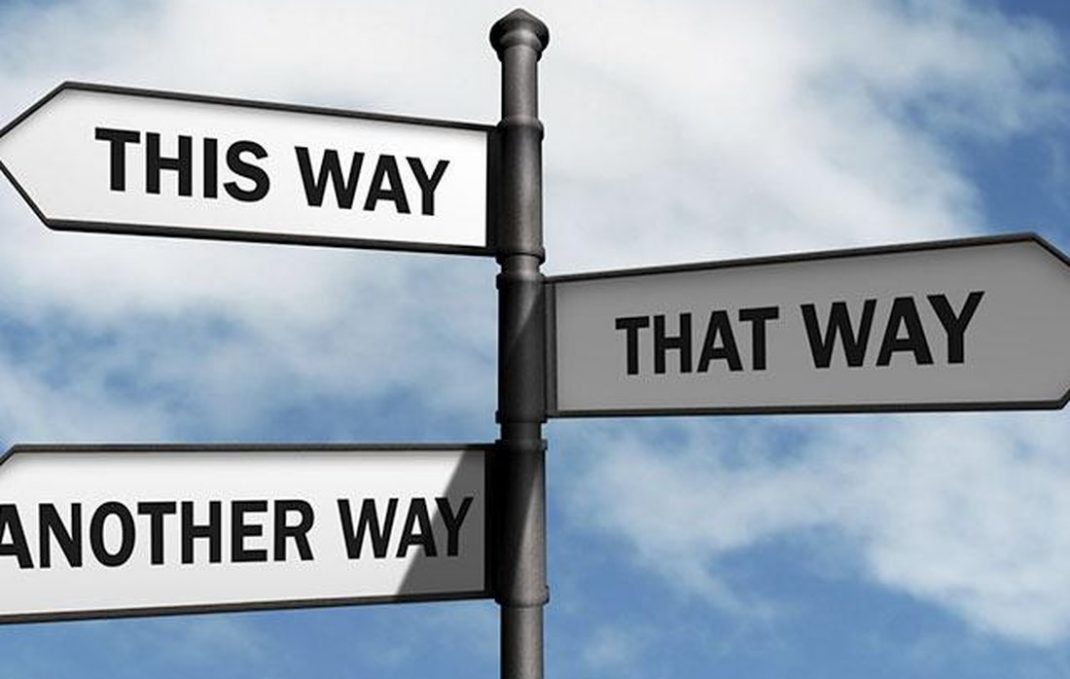Alta Vermeulen
 In October 2011 Libya’s civil war came to an end. After eight months of brutal civil conflict and instability Libyans were free from Gaddafi, but faced yet another challenge: building a new country for themselves after the Libyan transitional government declared the country liberated.
In October 2011 Libya’s civil war came to an end. After eight months of brutal civil conflict and instability Libyans were free from Gaddafi, but faced yet another challenge: building a new country for themselves after the Libyan transitional government declared the country liberated.
After rebel fighters found Gaddafi near his hometown in Sirte, and shot him in the head, the Libyan people were described as not only liberated but also as collectively relieved and free. Yet the vacuum left in Libya had to be filled, and it was up to the National Transitional Council (NTC) to complete that task.
During Gaddafi’s years of unchecked power the dictator managed to demolish ideas of state, institutionalism and community. Civil and political organisations suggesting alternatives were quickly removed from the local political arena. Still, some of Gaddafi’s worst acts may not have been oppression and murder, or the squandering of national wealth.
The acts which leave the post-Gaddafi Libya in turmoil to recover is amongst others the disruption of the culture of the political community and the undermining of the growth of the cultural components required for development.
NATO – Then and now
In June 2011 NATO’s secretary general, Andrew Fogh Rasmussen, urged the international community to prepare for a post-Gaddafi Libya, as the NATO alliance then extended its UN mandated campaign to include more air strikes and to protect the civilians.
According to Mr Rasmussen real progress had been made at that stage and NATO actions had prevented a massacre in Benghazi in the east – at the time the rebel’s stronghold – and in the rebel-held city of Misrata in the west.
Regarding a post-Gaddafi Libya, Rasmussen warned that the UN and other bodies should be ready to work towards ensuring a smooth transition to democracy. This statement indicated that the NATO’s plan was to ensure only the removal of Gaddafi and that the responsibility for further transition and development would be left to the UN and other bodies – NATO’s work being done.
NATO officials insisted that any future operation would not include alliance troops on the ground in Libya and would only come in support of other international organisations, which would likely be a stabilisation mission led by the UN.
Shortly after the brutal execution of Gaddafi the UN began with talks with the NTC on the country’s transition to a democratic state. Leaders of the rebellion planned an eight-month deadline to organise elections, once they have made a ‘declaration of liberation’.
Subsequent developments proved that none of these talks and declarations would make the transition any easier, nor would it speed up the process.
After the ‘liberation’ of the state, NATO committed to continuing its military air support for the revolution, though the general secretary did stress that it was not an indefinite plan and that the current operation would only continue as long as there was a clear threat against the civilian population, but not a second longer.
True to that promise, NATO announced a full withdrawal of troops to be set for the 31st August 2011. Whether all threats to the civilian population had been removed is a question yet to be answered. NATO described the Libya mission as one of the most successful missions to date, in spite of widespread criticism of its unchecked distribution of weaponry to local forces.
At the time, British Defence Secretary Philip Hammond said that the armed forces can be proud of their hard work and that it has assured the liberty of the Libyan people. In hindsight the question can be asked – exactly which Libyan people were he referring to?
The United Nations
Playing a managing role in Libya’s democratic transition is bound to be a difficult task, given the decades of brutal rule. The political and security challenges that faced the country were not only those of the legacy of authoritarian rule, but also the dysfunctional state institutions and confusion around political norms.
Regarding this difficult task, the UN Support Mission in Libya (UNSMIL) provided government officials with advice on issues regarding national political dialogue and priorities for the transitional period.
The United Nations Support Mission in Libya is a special political mission established in September 2011 by the UN Security Council in its Resolution 2009; at the request of the Libyan authorities following six months of armed conflict to support the country’s new transitional authorities in their post-conflict efforts.
All UN activities for the Libyan people are guided by the principle of national ownership. UNSMIL was mandated for an initial period of three months and extended for another three months thereafter.
The Security Council, in its Resolution 2022 in December 2011 expanded the mission’s mandate and it was further modified when the Security Council extended the Mission for 12 more months in March 2012.
In March 2013, Resolution 20195 extended the mandate once again for an additional 12 months.[8] The continued extension of the Mission led not only to confusion amongst the Libyan people, but also left a large gap for the NTC to prove their worth.
UNSMIL has substantive staff in political affairs, human rights transitional justice, mine action, demobilisation, development, women empowerment, public information and communication, as well as support services staff.
UNSMIL assisted Libyan authorities – at their request – to organize the General National Congress elections, one of the cornerstones of Libya’s democratic transition as stipulated in the National Transitional Council’s Constitutional Declaration.
Efforts focused on technical and operational advice to key interlocutors, principally the High National Election Commission (HNEC) during the elections that took place on 7 July 2012.
Libya’s 2012 elections and its aftermath
For some, the transitional government could have been described as largely ineffective – delivery systems for public goods were broken down, and armed militia groups exerted violent strength without fear of punishment.
The time between the ‘liberation’ of Libya and the democratic elections can easily be described as chaotic and presented an opportunity for some to take revenge and settle scores. National elections offered the only way to escape a situation where Libya was fast becoming one of Africa’s failed states.
After the historic parliamentary election in June 2012, the UN showered Libya with praise for handling a successful election amidst difficult circumstances.
The election was the first democratic election in 47 years. Around 65% of the electorate turned out to vote. Given the frail nature of the political landscape in Libya, who won and lost in the elections was not a simple process.
With the longevity of the Gaddafi regime in the background, Dr. Ahmed Jehani, head of the Libyan Development Policy Centre and former chairman of Libya’s transitional Stabilization Team, accurately described Libyans’ reactions to the elections as a child’s response to a new toy – full of curiosity.
Between Jbril’s liberal coalition, the Muslim Brotherhood, and Al Watan, a sudden swell of previously unrealised political sentiment arose within the population. This new political rivalry proved another factor which left the aftermath of the 2012 elections not quite as stable as claimed by participating organisational bodies.
2013 – The possible final chapter for ‘post-Gaddafi Libya’?
In July Libya’s national assembly passed a law providing for the election of a committee to draft a new constitution following the overthrow of Gaddafi.
The 60 members of the constitutional committee will be elected by popular vote, and will have 120 days to draft the charter. They will be divided equally amongst Libya’s three regions: Tripolitania in the west, Cyrenaica in the east and Fezzan in the south.
The model resembles the committee that drafted Libya’s pre-Gaddafi constitution, implemented when it became an independent state in 1951. Those responsible for drafting the constitution will need to take into account not only the local and cultural tensions, but also the new political-, and old tribal rivalries in Libya.
On the constitutional committee, six seats will be reserved for women and another six will be given to members of the Amazigh (Berber), Tibu and Tuareg communities. Candidates will stand as individuals, not representing political parties.
The country desperately needs a viable government and system of rule so that it can focus on reconstruction and healing the divisions created by the civil war and toppling of the Gaddafi-regime in 2011.
Armed violence and lawless areas caused mostly by the collapse of totalitarian rule of Gaddafi and the continuing power of rebel militias has crippled governance in large areas of the state.
A sharp decrease in oil production is only one of the economic implications caused by the ineffectiveness of the states’ security forces, in spite of the efforts of the General National Congress elected for an 18-month term in 2012.
The reality calls for a national political dialogue that seeks agreement on the priorities for the rest of transitional period. UNSMIL has provided government officials with advice on issues of such dialogue. UNSMIL has been supporting the efforts of the Libyan Government and people to ensure the success of the democratic process, which has been underway since the end of the Gaddafi-regime.
The risks regarding the new constitution and governance of Libya should not be underestimated; the road to democracy is not as quickly paved as previously thought by the UN. The transition to a successful democracy remains a challenge, for both the Libyan government and other bodies involved, like UNSMIL.
Security and political challenges still plague the country and areas of concern remain the treatment of detainees, border security, the continuing weak state of security sector institutions and the ever present threats from the south of the country.
As important as a constitution and elections may be for ushering in a new political beginning for Libya, the Libyan people will continue to endure the legacy left to them over the decades of totalitarian rule. Being ruled by a bizarre set of laws with no political coherence, drawn up in a Green Book is not a time soon to be forgotten.
***
Alta Vermeulen – Faculty Member, Political Science, University of the Free State.
___________




